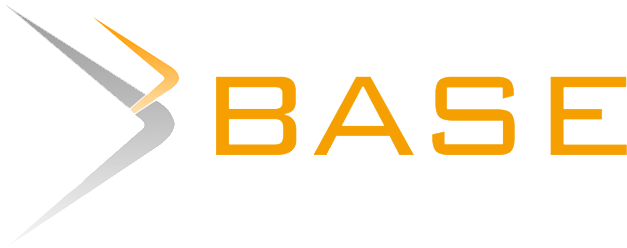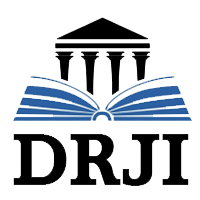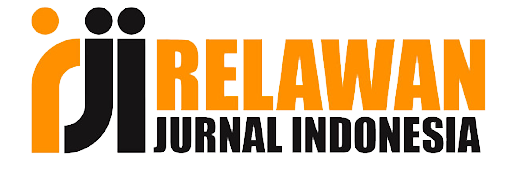Unveiling The Unseen Struggle: Impostor Phenomenon in Intermediate Level Students
Abstract
The aim of this study is to investigate impostor phenomenon among intermediate-level students, analyzing their unseen struggles within their academic performance. The mixed method, particularly the explanatory sequential design, was utilized to gather data from the intermediate-level students of Cabanatuan East Central School. Through the comprehensive analysis of gathered data from survey questionnaires to semi-structured interviews, the study reveals that intermediate-grade level students exhibit a moderate level of impostor phenomenon, indicating occasional feelings of inadequacy and self-doubt. The researchers also discovered the emergence of five themes summarized as FLARE, which highlights various aspects of the participants’ experiences in navigating academic challenges. However, the study also highlighted the intricate interplay of personal satisfaction, aspirations, and social dynamics in academic and personal development. Moreover, the study findings suggest that factor birth order factor shows a notable relationship. The researchers came up with the idea of creating the Flare-Up program as an intervention to empower students by helping them recognize impostor phenomenon, fostering a positive self-image, equipping them with coping tools, promoting a growth mindset, and creating a supportive environment. Recommendations were also provided to create a strong parental support system that may help children set realistic expectations for themselves.
Keywords
Full Text:
PDFReferences
Adler, A. (2014). The practice and theory of individual psychology. Routledge.
Ahmed, S. F., Tang, S., Waters, N. E., & Davis-Kean, P. E. (2019). Executive function and academic achievement: Longitudinal relations from early childhood to adolescence. Journal of Educational Psychology, 111(3), 446–458. https://doi.org/10.1037/edu0000296
Akinteye, A. (2021). Identity confusion: A symptom of impostor syndrome. LinkedIn. https://www.linkedin.com/pulse/identity-confusion-symptom-imposter-syndrome-amaka-akinteye
Al Lawati, A., Al Wahaibi, A., Al Kharusi, F., Fai Chan, F., & Al Sinawi, H. (2023). Investigating impostorism among undergraduate medical students at Sultan Qaboos University: A questionnaire-based study. Research Square. https://doi.org/10.21203/rs.3.rs-3104762/v1
Alampay, L. P., & Garcia, A. S. (2019). Education and parenting in the Philippines. Ateneo de Manila University. https://archium.ateneo.edu/psychology-faculty-pubs/97
Alfred, A. (2023). What to know about birth order. WebMD. https://www.webmd.com/parenting/what-to-know-about-birth-order
Askew, J., Pákozdy, C., & Brown, G. B. (2023). The impostor phenomenon and its relationship with self-efficacy, perfectionism, and happiness in university students. Current Psychology. https://doi.org/10.1007/s12144-023-04672-4
Bailey, A. (2023). Understanding psychosocial development. Verywell Health. https://www.verywellhealth.com/psychosocial-development-5220563
Bandura, A., Barbaranelli, C., Caprara, G. V., & Pastorelli, C. (1996). Multifaceted impact of self-efficacy beliefs on academic functioning. Child Development, 67(3), 1206–1222. https://doi.org/10.2307/1131888
Bennett, D. D. (2022, October 14). Comparing your child to others does not encourage good behavior, expert says: Use this approach instead. Smart Parenting. https://www.smartparenting.com.ph/parenting/real-parenting/comparing-kids-a1856-20221014
Bornstein, M. H., Putnick, D. L., & Esposito, G. (2020). Skill-experience transactions across development: Bidirectional relations between child core language and the child's home learning environment. Developmental Psychology, 56(10), 1842–1854. https://doi.org/10.1037/dev0001092
Benisek, A. (2022). What is impostor syndrome? WebMD. https://www.webmd.com/balance/what-is-imposter-syndrome
Bhandari, P. (2023). What is qualitative research? Scribbr. https://www.scribbr.com/methodology/qualitative-research/
Brenigar, K., & Caskey, M. (2022). Physical, emotional, and cognitive development. Association for Middle Level Education. https://www.amle.org/developmental-characteristics-of-young-adolescents/
Castro, D. M., Jones, R. A., & Mirsalimi, H. (2004). Parentification and the impostor phenomenon. Journal of Clinical Psychology, 60(2), 129–141. https://doi.org/10.1002/jclp.10182
Cherry, K. (2023). The concrete operational stage of cognitive development. Verywell Mind. https://www.verywellmind.com/concrete-operational-stage-of-cognitive-development-2795458
Cokley, K., Krueger, N., Roberts, S., Hall, S., Harris, K., Coleman, C., & Castelin, A. (2023). Impostor phenomenon in educational settings: Understanding the dynamic nature of impostor feelings. Journal of Educational Psychology, 115(3), 421–438. https://doi.org/10.1037/edu0000711
Cunic, A. (2023). Imposter syndrome: Why you may feel like a fraud. Verywell Mind. https://www.verywellmind.com/imposter-syndrome-and-social-anxiety-disorder-4156469
Dana, O. (2015). How does social comparison affect self-esteem in the classroom after receiving an exam grade. Rowan University. https://rdw.rowan.edu/cgi/viewcontent.cgi?article=1563&context=etd
Davis-Kean, P. E., Tighe, L., & Waters, N. (2022). The role of parental educational attainment in child well-being: A longitudinal study. Child Development, 93(1), 215–230. https://doi.org/10.1111/cdev.13747
Dahl, B. (2023). Comparing your child to others does not encourage good behavior, expert says: Use this approach instead. Smart Parenting. https://www.smartparenting.com.ph/parenting/real-parenting/comparing-kids-a1856-20221014
Erikson, E. H. (1982). The life cycle completed. Norton.
Fredericks, H., Hasan, M., Maryam, M., Mohamed, N., Zaidi, A., & Zainaldeen, Z. (2022). Impostor phenomenon and its relationship to self-esteem among students at an international medical college in the Middle East: A cross-sectional study. Journal of Psychosomatic Research. https://doi.org/10.1016/j.jpsychores.2022.110656
India Parenting. (2021). Harmful effects of criticising kids. India Parenting. https://www.indiaparenting.com/harmful-effects-of-criticising-kids.html
Harter, S. (1982). The perceived competence scale for children. Child Development, 53(1), 87–97. https://doi.org/10.2307/1129640
Harvard Catalyst. (2024). Mixed methods research. Harvard Catalyst. https://catalyst.harvard.edu/community-engagement/mmr/
Houtum, V. L. A. E. M., Will, G. J., Wever, M. C. D., Janssen, L., Schie, C. V., Tollenaar, M. S., & Elzinga, B. (2022). Adolescents' affective and neural responses to parental praise and criticism. Developmental Cognitive Neuroscience, 54, 101099. https://doi.org/10.1016/j.dcn.2022.101099
Huecker, M. R., Shreffler, J., McKeny, P. T., & Davis, D. (2023). Impostor phenomenon. National Center for Biotechnology Information. https://www.ncbi.nlm.nih.gov/books/NBK585058/
Kaur, M., & Dhawan, S. (2021). Exploring self-efficacy beliefs among middle school students: A qualitative study. Journal of Educational Psychology, 113(2), 287–302. https://doi.org/10.1037/edu0000645
Marter, J. (2023). 5 types of impostor syndrome & how to overcome them. Choosing Therapy. https://www.choosingtherapy.com/imposter-syndrome-types/
McLean Hospital. (2023). A guide to impostor syndrome and overcoming it. McLean Hospital. https://www.mcleanhospital.org/essential/impostor-syndrome
McLeod, S. (2023). Erik Erikson’s stages of psychosocial development. Simply Psychology. https://www.simplypsychology.org/erik-erikson.html
Moncada, K. A., & Moneva, J. (2020). Parental pressure and students' self-efficacy. ResearchGate. https://doi.org/10.13140/RG.2.2.15791.76969
Owens, A. (2021). What is imposter syndrome? Psycom. https://www.psycom.net/imposter-syndrome
Ott, T. (2018). I’m just not smart anymore: Imposter syndrome and gifted students. Teach Better. https://teachbetter.com/blog/imposter-syndrome-gifted-students/
Pákozdy, C., Askew, J., Dyer, J., Gately, P., Martin, L., Mavor, K. I., & Brown, G. R. (2023). The impostor phenomenon and its relationship with self-efficacy, perfectionism, and happiness in university students. Current Psychology. https://doi.org/10.1007/s12144-023-04672-4
Park, L. E., & Kim, E. S. (2019). Impostor phenomenon and patterns of self-handicapping behaviors: Does the fear of failure matter? Journal of Personality, 87(6), 1217–1234. https://doi.org/10.1111/jopy.12473
DOI: https://doi.org/10.24176/perseptual.v10i1.14016
Refbacks
- There are currently no refbacks.

Jurnal Psikologi Perseptual (eISSN 2580-9520) is licensed under a Creative Commons Attribution-ShareAlike 4.0 International License














